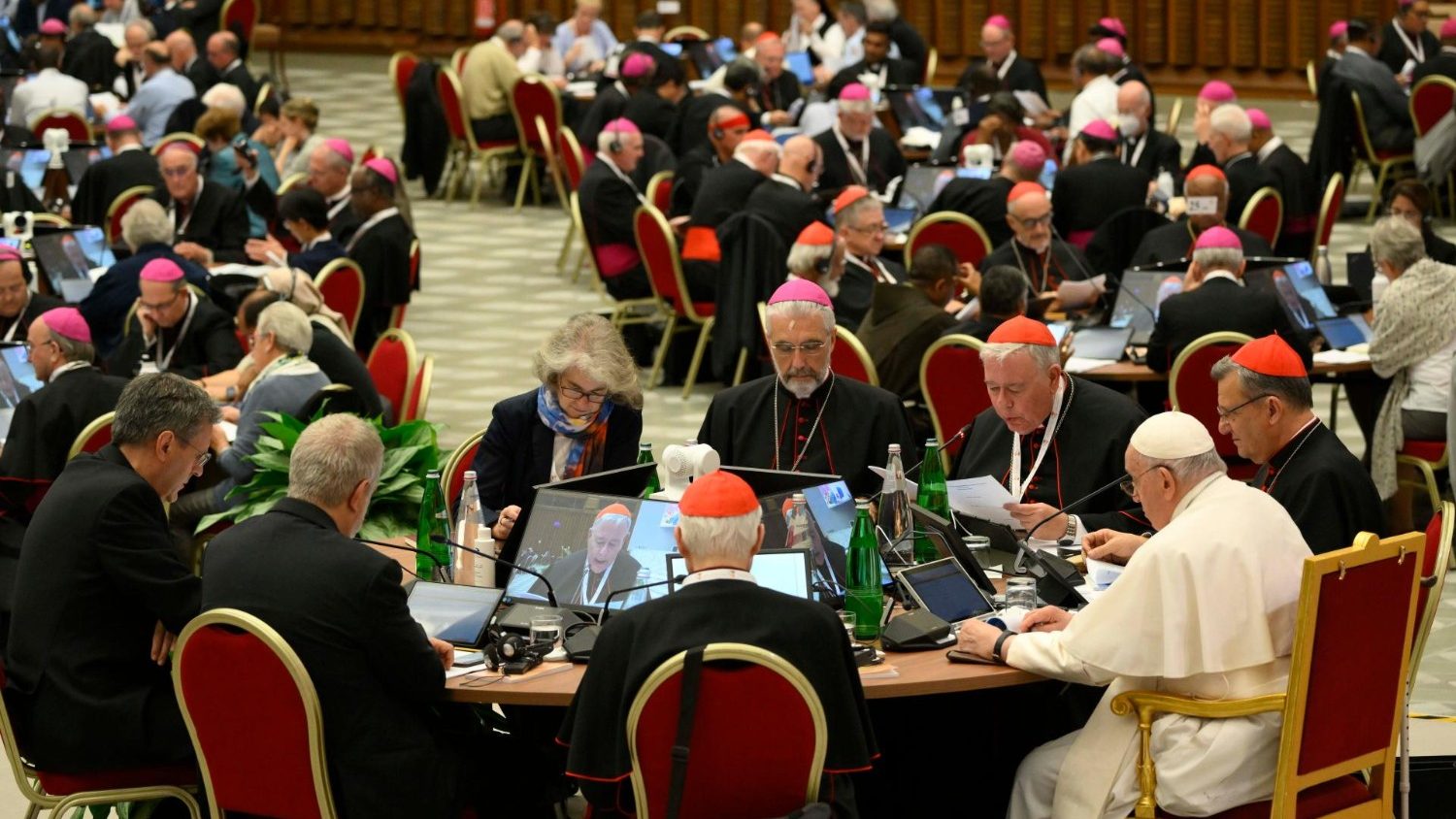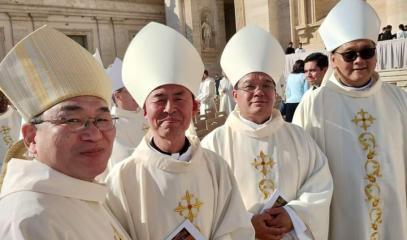The Synod of round tables: discussion begins in the Vatican
Divided into 35 small groups in the Paul VI Hall, participants are discussing the first part of the Instrumentum Laboris. The two mainland Chinese bishops concelebrated Mass with Pope Francis. Mathew Tomas, a layman from a vicariate of Arabia, told his story, explaining how young people met construction workers individually for the synod.
Vatican City (AsiaNews) – After yesterday's Mass and the inaugural session in the afternoon, the Synodal Assembly began its work this morning in the Paul VI Hall.
The first part of Instrumentum laboris will see some 35 round tables, each with about 10 or more people, speaking the same language, discussing the first part of the synodal consultation, reflecting on how to turn mutual listening into a method for the Church.
Each member of the Synod was given a place at one round table, distributed according to language (Italian, English, French and Spanish) and type, non-bishop members (priests, men and women religious, lay people and lay people), a novelty compared to the working method of previous episcopal assemblies.
The small groups are the starting point, where everyone is immediately called to bring their own contribution, which a rapporteur (elected by each group) will report in a brief summary at the General Congregation, careful to present points of convergence and divergence.
The process of mutual listening will go on for the first two weeks of the Synod, which Pope Francis stressed yesterday evening in his greeting to the first General Congregation, referring to outside pressures in the case of some topics.
In his address, the pontiff touched a number of themes like communion for the divorced or the ordination of viri probati, which have dominated the media debate in previous synods, or more recent controversies: “What will they do?”, “Perhaps the priesthood for women.” For this reason, he urged journalists to inform the public that this synod “is a pause for all the Church, to listen. This is the most important message.”
Two bishops were present from the People's Republic of China, appointed by Pope Francis upon the suggestion of the local Church in agreement with Chinese authorities: Bishop Joseph Yang Yongqiang of Zhoucun (Shandong) and Bishop Anthony Yao Shun of Jining (Inner Mongolia).
The two concelebrated yesterday morning’s opening Mass in front of St Peter's Basilica (see picture), which Archbishop Tarcisius Isao Kikuchi of Tokyo shared on his Facebook account.
In his address, he spoke about the synodal journey in his community, which includes more than a hundred 100 nationalities speaking dozens of languages.
"I want to dedicate a special mention to the fact that our synodal process was also attended by the small Catholic community that still lives its faith in war-torn Yemen."
He spoke about what was done to involve those who never had a voice. "Most of the migrants in the Gulf are construction workers, living in special camps, working 10 or 12 hours a day, six days a week. Hundreds of young volunteers went around to meet them. Holding meetings in the camps was not allowed, so they met them one by one. The latter were happy that the Church had taken the initiative to listen to them."
Another special experience of synodal listening in the region involved a community of Catholic fishermen in one of the emirates.
"At first they did not want to collaborate because for almost three years they had not come to church over some disagreement,” Thomas explained. ‘But young people continued to visit them and so they agreed to sit down to talk. The result is that they are back in church.”
10/10/2019 14:36
24/10/2019 17:56
24/05/2021 20:04








.png)










